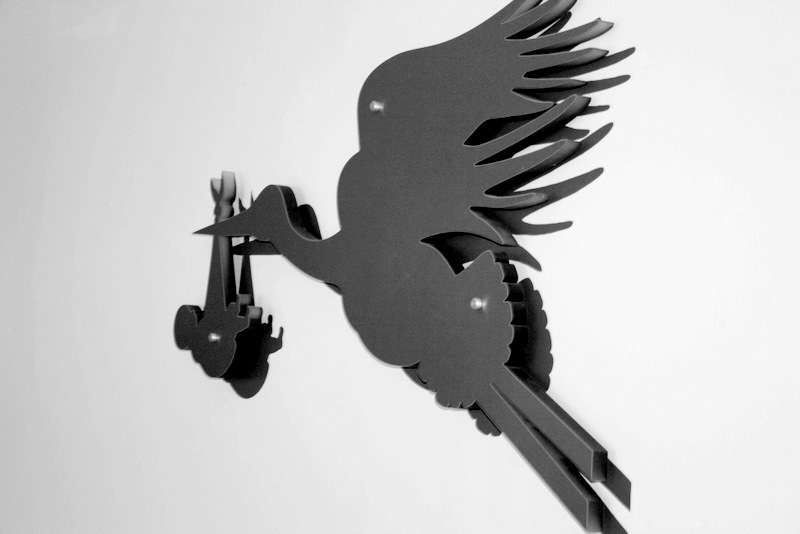Trump's Politically Incorrect Abortion Comments Complicate Republican Narrative
The GOP frontrunner's off-the-cuff comments about abortion don't fit with the preferred pro-life spin.


"Everyone—even pro-lifers—hated Donald Trump's comments about abortion," reports Vox. In a televised interview with Chris Matthews Wednesday, the Republican presidential frontrunner suggested that if abortion were banned, then "there has to be some form of punishment" for women who terminate their pregnancies illegally.
People on all sides of the abortion debate promptly freaked out, with women's groups and pro-lifers alike condemning Trump's statements. And Trump quickly shifted his position, saying in a statement later that day that if abortion were illegal, "the doctor or any other person performing this illegal act upon a woman would be held legally responsible, not the woman. The woman is a victim in this case as is the life in her womb."
Trump's initial, off-the-cuff statements were in response to Matthews pressing him: "If you say abortion is a crime or abortion is murder, you have to deal with it under the law. … Do you believe in punishment for abortion—yes or no—as a principle?"
Trump: The answer is there has to be some form of punishment.
Matthews: For the woman?
Trump: Yeah, there has to be some form.
Matthews: Ten cents, 10 years, what?
Trump: That I don't know.
These comments run counter to the mainstream pro-life spin on criminalizing abortion, which is that women would never be punished, just those wily abortionists who prey on them. "We know how much women suffer from abortion, and how they are lied to by the abortion industry," said Eric Scheidler, executive director of the Pro-Life Action League, in a typical pro-life response to Trump's comments. "Any penalty for illegal abortion should fall on abortion providers, not the women who turn to them in desperation."
Mollie Hemingway, writing at The Federalist, called Trump's position "a betrayal of pro-lifers," who "understand that abortion is a violent act against women and children." As a new convert to the anti-abortion side, Trump shows "no understanding of the debates about how to protect vulnerable women and their children from the evil pressure to abort," writes Hemingway. She also heralds a piece by Charles Camosy, in which he argues that "legal abortion is the product of privileged men" and that "our abortion laws end up serving the interests of men and coercing the so-called 'choice' of women."
But here's what neither Camosy, Hemingway, Scheidler, or any of the major pro-life voices have addressed: What happens when there is no abortion doctor? No sketchy clinic. No nagging or coercive partner. What happens when a woman decides to terminate her pregnancy and takes matters into her own hands?
Women have been self-inducing abortions for time immemorial. Herbs. Coat hangers. Mifepristone. It's that last one, used in conjunction with another drug (misoprostol), that's likely to be most common for illegal 21st Century abortions. This two-pill regimen, referred to as "medical abortion" (as opposed to surgical abortion), is currently a common method for legal first-trimester abortions in America.
But that doesn't mean it's an easily accessible option for all women seeking abortions. Many states have set up a labyrinth of laws designed to make the process of prescribing or obtaining abortion drugs more difficult and time-consuming than necessary for women's health or safety. As a result, we already see American women illegally obtaining the drugs to self-induce abortion. And what happens now, when these cases are found out? The women are criminally prosecuted, under a range of state charges, such as fetal homicide or "unlawful abortion."
"Despite claims from antiabortion advocates and lawmakers that abortion restrictions are intended to only criminalize providers of abortion care, some prosecutors have exercised their discretion under current state laws to penalize women who end their pregnancies on their own," notes the Guttmacher Institute. If this is what happens when abortion is legal, why should we expect differently under an abortion ban?
What's more, prosecutors have not limited these charges to women who admit to self-induced abortion, or to cases where the evidence clearly suggests it, but in some instances gone after women who say they have suffered miscarriages. Whatever the truth in these individual cases, this points to another issue with criminalizing abortion: suddenly, many women who spontaneously miscarry will become suspect.
It is theoretically possible that if abortion were illegal, pro-lifers would advocate new laws protecting pregnant women from punishment even in cases where they act 100 percent independently. Then again, that seems like a rather toothless and ineffectual sort of abortion ban. And also a strange compromise, from a moral standpoint: if abortion is murder—and punishable accordingly when someone is an accomplice to it—how can it be that the killer is subject to absolutely no consequences? These are questions prominent pro-lifers do not answer, or even bring up.
If pressed, I'm sure some would suggest there is always someone to hold responsible (other than the woman): an overseas pharmacy that sold her the abortion drugs, a boyfriend who doesn't want kids, a friend who kept the woman company while taking the abortion pills. There are all sorts of creative avenues for criminalization, sure. In other areas where women are deemed incapable of moral reasoning or agency, such as prostitution, we already see this sort of work in action, with police going after anyone tangentially related to the commercial sexual activity.
It's understandable, from a political standpoint, that abortion opponents don't want to talk about these things—especially when they're running for office. But that doesn't mean we wouldn't have to reckon with them if abortion were once again illegal in this country.
Note that no one on the pro-life side has argued that Trump doesn't actually believe in punishing women if abortion were illegal. When people suggest that Trump just "doesn't get" the pro-life position, what they're really saying is that he doesn't get how pro-life Republicans are supposed to talk about their positions. That it's politically incorrect to talk about punishing women, regardless of what you actually believe.
Yet, as The New Republic's Jeet Heer tweeted, Donald Trump "has a habit of turning sub-text into text. He doesn't know how to talk in dog whistle or code & spells out bluntly implications of policy. Bush talked about WMDs & spreading democracy. Trump says USA should kills enemies & 'take the oil.' Bush's subtext is Trump's text. … In the case of abortion, Trump isn't native to anti-abortion right & doesn't know lingo devised to hide horrifying implications of policy."
Trump's original statements on abortion might not have been politically correct from a conventional conservative perspective, but they were the closest to honesty or authenticity we've gotten from a pro-life politician in a long time.


Show Comments (138)